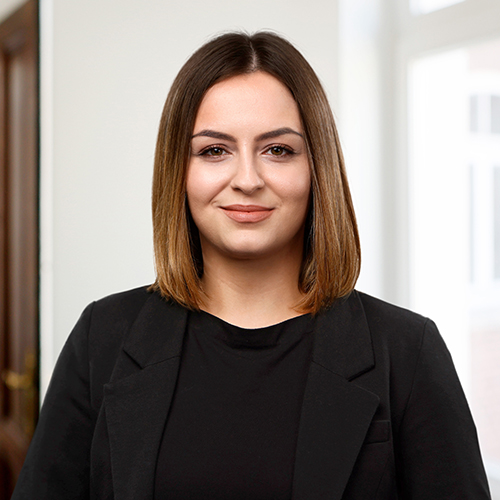George Macdonald, CEO at MACD, has been working for the company since 1992 and is thus celebrating his 30th anniversary this year. He is one of the pioneers when it comes to the digitalisation of the financial industry and worked, for example, on the switch from ring to electronic trading in Switzerland. His company MACD has been very successful for many years and is the market leader for trading connectivity in Switzerland.
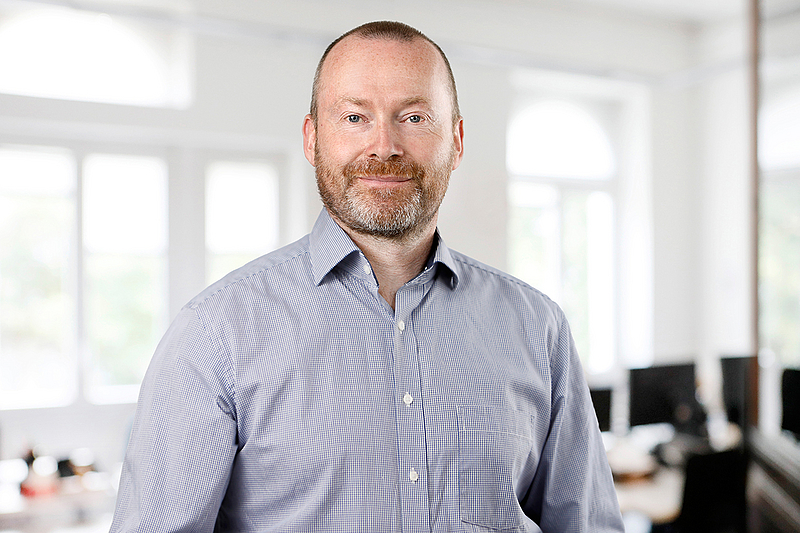
We took the opportunity to talk to him about the company's history, among other things, about which events from this long period he particularly remembers and what he still wants to achieve with MACD in the future, but also asked him some personal questions to learn more about the person behind the CEO.
Back to the beginning: Why don't you tell us how it all started?
I had the advantage of gaining experience very early on. My father founded the company in 1983 under the name Macdonald Associates Ltd and developed software for auction houses. When I was still at school, I helped out in the company and, among other things, answered the phones. That's where I learned, for example, that it's important to take good care of customers. I worked regularly for the company, both during my summer vacations and while I was studying computer science. I then started working full time for the company in 1992.
In 1996, I moved to Switzerland and, as an external consultant, assisted in the switch from ring trading to electronic trading on SIX (formerly SWX Swiss Exchange), the electronic exchange in Switzerland. This was ground breaking at the time. I assisted with the migration of the banks, i.e. setting up the hardware, installing the new software, etc. The connection to the exchange was relatively expensive, because you had to buy special hardware and develop software for it. This was a very complex problem and represented a major hurdle, especially for new, potential member banks, which is why many refrained from becoming members.
I quickly realised that this could be done in a simpler and less expensive way. I also believed that connectivity would become increasingly important in the future. So then the idea for a hosted exchange connectivity, which we called xConnect, was born. We had the complexity and the necessary hardware in our data center, developed software for the banks that included both a FIX interface and frontend, and thus enabled many banks to become new members of SIX at low cost.
Of course, MACD has evolved over time. Among other things, we have introduced new asset classes and expanded our range of modules, but the core idea was to offer a simple and cost-effective solution for connecting to electronic markets.
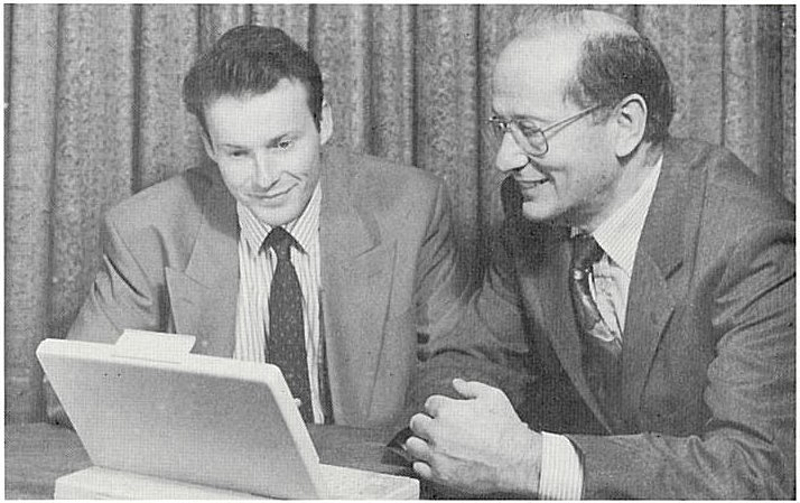
So you had the idea of a hosted order management system (OMS) long before cloud computing existed?
Exactly. At that time the term cloud computing was not even known. Hosted systems already existed, but they were not very common and usually less integrated with customers' internal systems and processes. That's why our product xConnect at the time was special: with the FIX interface, we offered an integrated solution that was hosted, but still strongly integrated into the banks' workflow and core business.
30 years is a special anniversary for the comparatively young IT industry. What is the secret of MACD? And what does your 30th anniversary mean to you personally?
I wouldn't necessarily call it a secret, but for us as a company it is important to stand up to challenges, because these can always occur, at any company. We talk about them openly and always try to find solutions to problems to the best of our ability. If you do that, you can be proud of your work and the result.
30 years sounds really long, but it doesn't feel that way to me. The work at MACD has always been very varied and I have been able to make many friends with employees as well as customers. Looking back, it fills me with pride what we have achieved as a team.
You founded Macdonald Associates GmbH (today MACD) in 1999 in Aachen, Germany with Lucas Fowler, your then work colleague as well as friend and current Stream Lead Software Engineering at MACD.
Many people would avoid hiring friends because they would be afraid that the friendship would suffer. What experience have you had?
You often hear that, but I have had exactly the opposite experience. Over the whole time I have hired some friends, e.g. my former schoolmate Dave Linaker who worked for MACD in the UK. My experience has always been very good and as far as I can tell, they have always seen it as a positive move to work for MACD. Even existing employees of MACD have become friends of mine. For me, a mixture of friendship and work is therefore not a problem. I think it's very important to be proud of the values you embody as a company and to believe in them. Then you can hire friends very well.
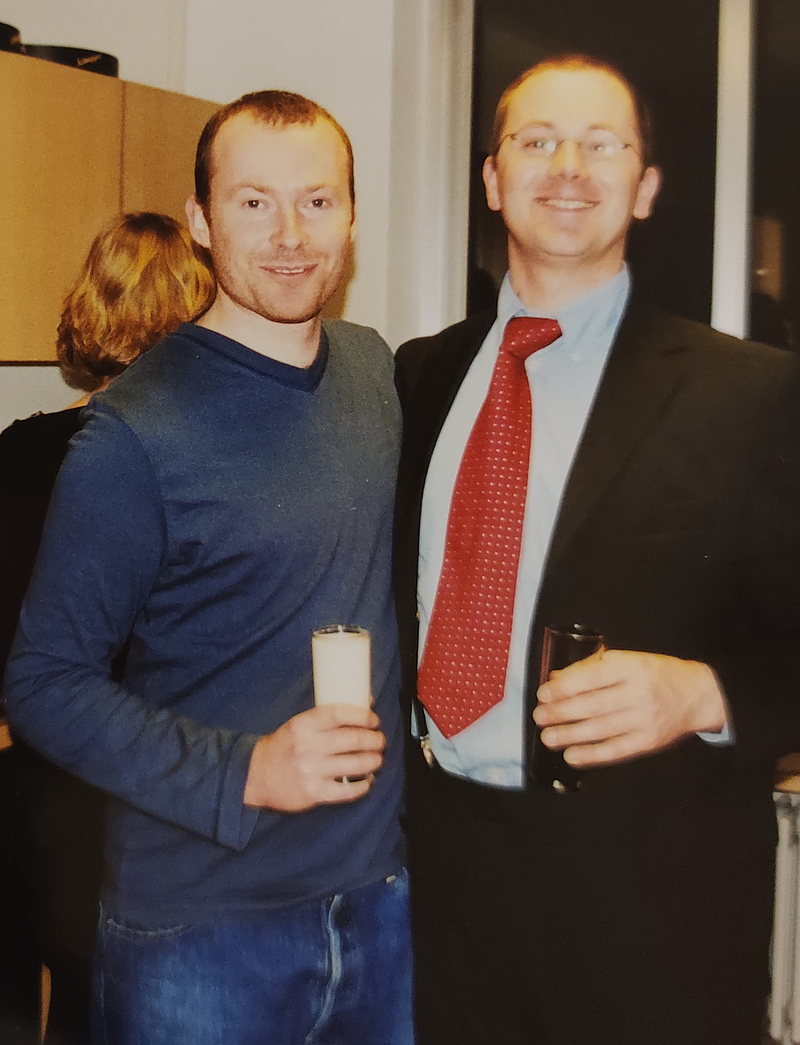
What do you remember most from this long period? What were your personal highlights from the 30 years?
Most of the time, it's the difficult projects that are best remembered. In the end, however, we were able to master every challenge and then look back proudly on the results we achieved.
Above all, I think back here to our start and how difficult it was to win the first customer, since we were still an unknown company. In 2009, there was a major technology change at SIX, which meant that we had to fundamentally reprogram our system. This was a big project with a tight timeframe, but we managed it so that one of our customers was able to make the first trade on the new platform. In 2017, we joined forces with OARIS, which was very rewarding due to the many new acquaintances and views it gave us. Óf course it was a big challenge to merge two companies.
There were numerous other positive experiences. For example, I have very fond memories of traveling to São Paolo, Brazil, in 2005, together with Dave Linaker, to give a two-week FIX training course at BM&FBovespa S.A. (the stock exchange in Brazil). It was very nice to get to know São Paolo and also the landscape around the city.
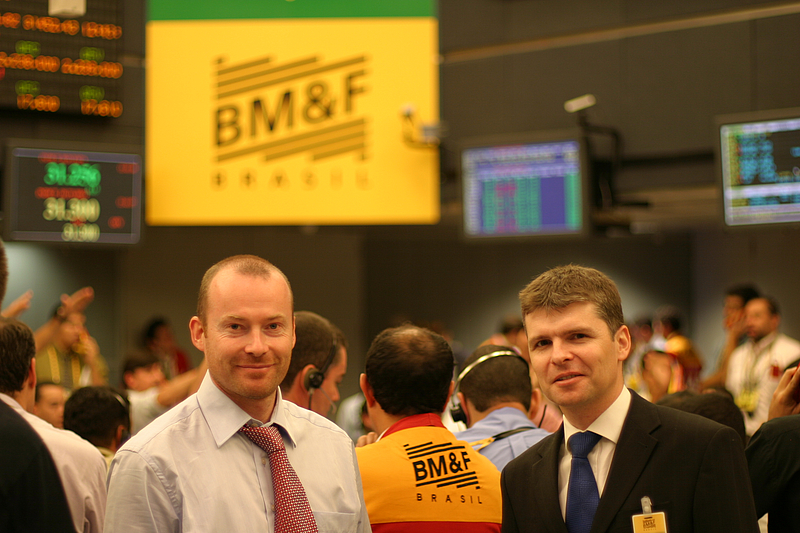
You talk about the challenges over time: Have there been days when you wanted to give up? If so, why did you continue anyway?
I think we all have days like that, and I did indeed have that relatively often, especially in the beginning. As I just mentioned, as a new company it was not easy to get the product up and running in the first place, but also to find customers and cover the cash flow. However, the good relationship with my team and their loyalty always convinced me that I had to continue.
What was your most valuable experience?
For me, it's the whole package: seeing everything we've built up together with the team and our customers. In addition, I have been able to collect some great memories, because I share many happy moments with both employees and customers.
What qualities do you think make the ideal manager?
(laughs) I'd like to start by saying that I'm not. But from my point of view, there are various components. On the one hand, you have to give your employees freedom, but on the other hand, you still have to be willing to work on problems together. But I have learned that this is only possible to a certain extent. At MACD, we started with only 2 employees, then 5, then 10, and now we have 40. At each point in time, different qualities were needed. I learned over time that I had to step away from the day-to-day business. As a managing director, it is simply not possible to be involved with everything. Of course, it was different back then when we were just a few employees. The bigger a company gets, the more abstraction from the day-to-day business is possible and necessary.
Nevertheless, a good boss is someone who understands the issues, rolls up his sleeves in an emergency and works on problems. A very good manager should be able to tell employees what they have done wrong, how they can improve, and provide coaching. It is also very important to formulate a vision or a running direction, but also to always reflect and listen to what the employees want and how the company can further optimise itself. One should be ready to adjust the course. In the end, you could say that empathy is very important for the ideal leader.
Do you have a role model?
I wouldn't necessarily say that I have a role model. It's always good to look at different people and what they do right in order to learn from it. One example for me is the life story of Richard Branson and how he built his company as a full-blooded entrepreneur.
But you can just as easily learn from what others are doing wrong. You always read about how mistakes are made in business or life, and as we all know, you are supposed to learn from your mistakes. I think it's important to learn from the mistakes of others. It shows you: aha, someone did something wrong and maybe I would have done it just as wrong, but I've learned and I won't make that mistake.
When you look back on your 30 years at MACD, would you do everything the same way again?
(laughs) That's a difficult question. I think if everyone had a crystal ball, no one would do everything the same way again. But with the knowledge and the information that I had at the time, I would by and large make the same decisions. Of course, in retrospect you are smarter and would perhaps do some things a little differently, but that's always the case in life.
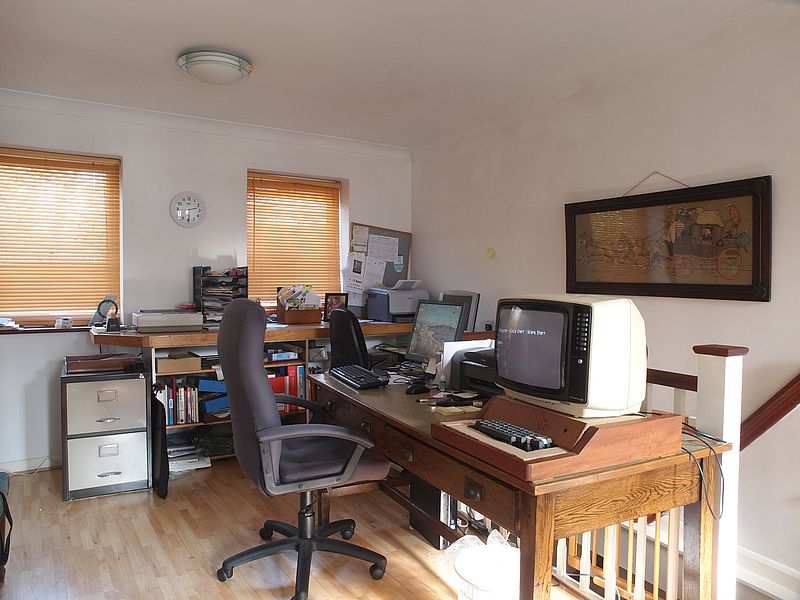
What are your passions outside of work?
I spend a lot of time with my family and friends. I also enjoy various sports, such as golf. What I find exciting about golf is the combination of athleticism and technique: you have to think very carefully about how to make which body movement, how to master the course, and so on.
I also recently started jogging. I've always avoided it, but my sister made me go to a parkrun in England the other day. These take place every Saturday all over the country. They are distances of 5 kilometers where everyone can run along at their own pace and feel comfortable. There are always volunteers who deliberately run at the very end in order to include everyone, e.g. also people who walk their dog. Through this I have developed a certain love for jogging.
Each employee of MACD gets additional vacation days for anniversaries. What will you do with your 20 extra vacation days and when?
I'll probably use my extra vacation to take some time off on a houseboat, that would be a great experience. I would like to have as few digital connections as possible and just spend time with nature and myself. Where exactly I can't say yet, maybe in England, because it would be well suited due to its many river paths. I think it's important to use the days for something you wouldn't have done otherwise, and then not just take individual days off. That you consciously say to yourself: I've always wanted to do that, and now I'm taking the time for it. But since I also like to travel by train, that would also be an alternative for me. Just traveling more through foreign countries.
I hope that I can implement this next year. I have the great advantage that I can rely on the team: I know that I can go offline for a few weeks and, with a little preparation in advance, the business will continue without me.
Where do you see MACD in the future? What do you still want to achieve (together with your team)?
I am convinced that we still have a very exciting time ahead of us. We have recently integrated quite a few new features into our system. We have also greatly expanded our fund offering and are currently working with InCore Bank to roll out digital asset trading. Together with one customer we have introduced FX trading and have other customers who are interested in also doing FX trading through our system. There are still some asset classes that can be digitalised. Furthermore, we are in full swing to connect external asset managers directly with our customers. Ultimately, we also have the potential to grow internationally.
We also have a very good team, which gives me a lot of pleasure. Our team offers a good mix of long-standing employees with a lot of experience and new team members who bring additional ideas and focus. I am therefore very optimistic about the future.
What else would you like to say to MACD's customers and partners?
Thank you very much for the great cooperation. I have a lot of good memories of working together with customers both on a business and personal level, e.g. through various social occasions we could experience together.
In summary, I would simply like to say: Thank you!
Thank you, George, for the interview and the very interesting insights. We are already looking forward to celebrating your next anniversary with you!
You're welcome and thank you.
More Blog PostsMore about MACD


